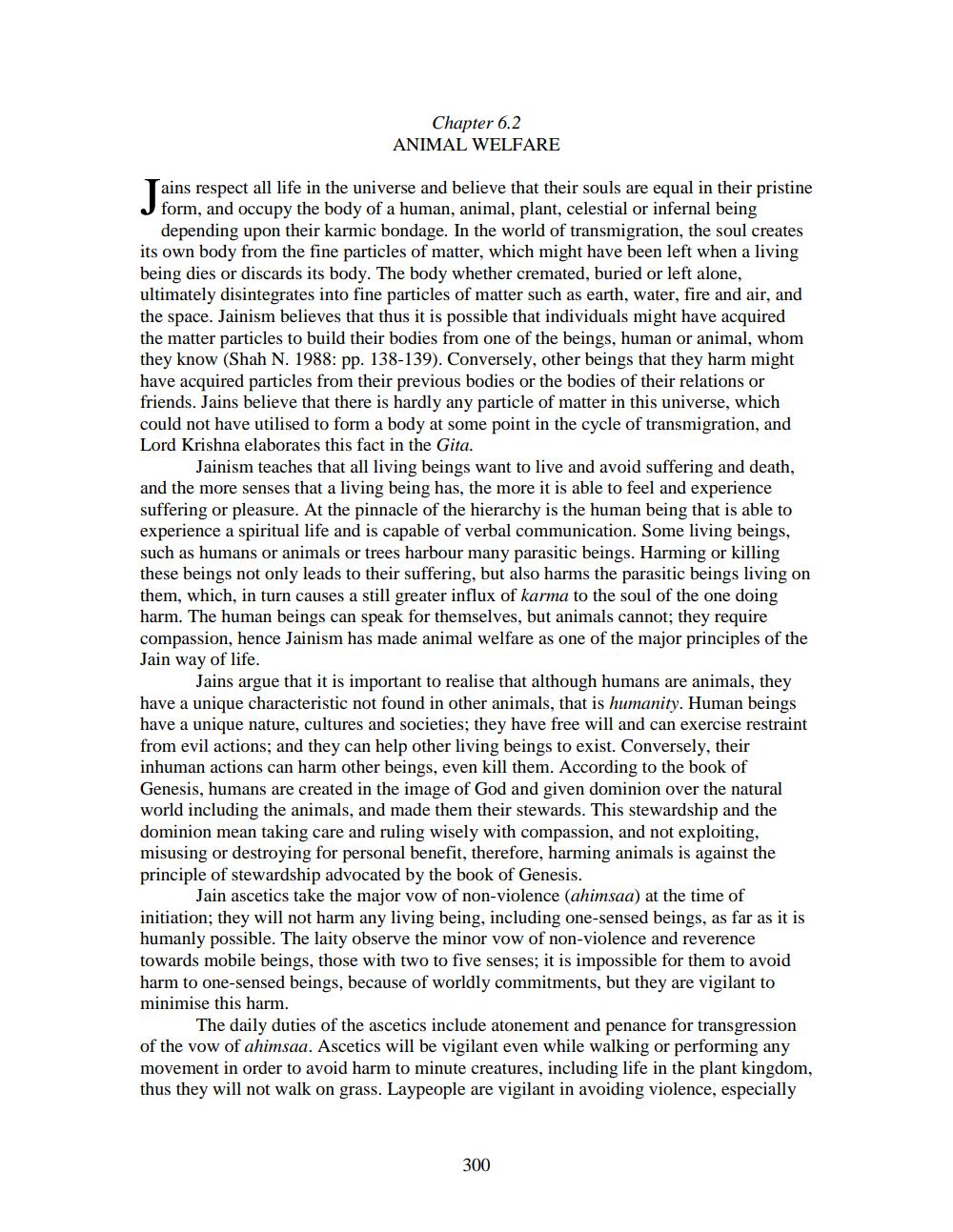________________
Chapter 6.2 ANIMAL WELFARE
ains respect all life in the universe and believe that their souls are equal in their pristine
a human, animal, plant, celestial or
depending upon their karmic bondage. In the world of transmigration, the soul creates its own body from the fine particles of matter, which might have been left when a living being dies or discards its body. The body whether cremated, buried or left alone, ultimately disintegrates into fine particles of matter such as earth, water, fire and air, and the space. Jainism believes that thus it is possible that individuals might have acquired the matter particles to build their bodies from one of the beings, human or animal, whom they know (Shah N. 1988: pp. 138-139). Conversely, other beings that they harm might have acquired particles from their previous bodies or the bodies of their relations or friends. Jains believe that there is hardly any particle of matter in this universe, which could not have utilised to form a body at some point in the cycle of transmigration, and Lord Krishna elaborates this fact in the Gita.
Jainism teaches that all living beings want to live and avoid suffering and death, and the more senses that a living being has, the more it is able to feel and experience suffering or pleasure. At the pinnacle of the hierarchy is the human being that is able to experience a spiritual life and is capable of verbal communication. Some living beings, such as humans or animals or trees harbour many parasitic beings. Harming or killing these beings not only leads to their suffering, but also harms the parasitic beings living on them, which, in turn causes a still greater influx of karma to the soul of the one doing harm. The human beings can speak for themselves, but animals cannot; they require compassion, hence Jainism has made animal welfare as one of the major principles of the Jain way of life.
Jains argue that it is important to realise that although humans are animals, they have a unique characteristic not found in other animals, that is humanity. Human beings have a unique nature, cultures and societies; they have free will and can exercise restraint from evil actions; and they can help other living beings to exist. Conversely, their inhuman actions can harm other beings, even kill them. According to the book of Genesis, humans are created in the image of God and given dominion over the natural world including the animals, and made them their stewards. This stewardship and the dominion mean taking care and ruling wisely with compassion, and not exploiting. misusing or destroying for personal benefit, therefore, harming animals is against the principle of stewardship advocated by the book of Genesis.
Jain ascetics take the major vow of non-violence (ahimsaa) at the time of initiation; they will not harm any living being, including one-sensed beings, as far as it is humanly possible. The laity observe the minor vow of non-violence and reverence towards mobile beings, those with two to five senses; it is impossible for them to avoid harm to one-sensed beings, because of worldly commitments, but they are vigilant to minimise this harm.
The daily duties of the ascetics include atonement and penance for transgression of the vow of ahimsaa. Ascetics will be vigilant even while walking or performing any movement in order to avoid harm to minute creatures, including life in the plant kingdom, thus they will not walk on grass. Laypeople are vigilant in avoiding violence, especially
300




